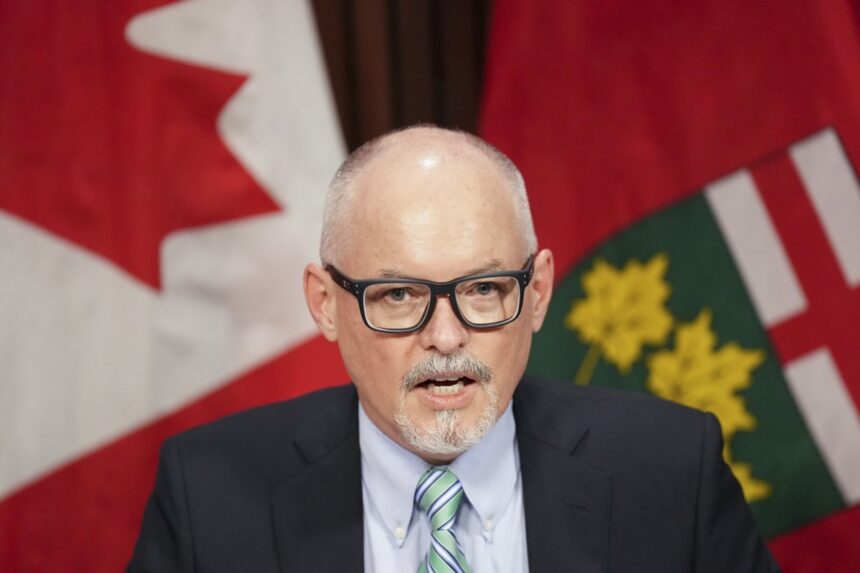In a significant move toward modernizing Canada’s healthcare infrastructure, Ontario’s Chief Medical Officer of Health, Dr. Kieran Moore, has joined growing calls for a comprehensive national vaccine registry. This digital system would fundamentally transform how vaccination records are maintained across provincial boundaries, replacing the current fragmented approach that has repeatedly demonstrated its limitations during public health emergencies.
“What we’re advocating for is a seamless, integrated approach to vaccination tracking,” Dr. Moore explained during a press conference at Queen’s Park yesterday. “The current system of siloed provincial databases creates unnecessary barriers to effective healthcare delivery and emergency response capabilities.”
The push comes amid increasing recognition that Canada’s decentralized health information systems created substantial challenges during the COVID-19 pandemic. When millions of Canadians needed rapid access to vaccination records for travel, employment verification, or attendance at public venues, the absence of a unified system resulted in delays, confusion, and administrative burdens that could have been avoided.
Dr. Moore’s advocacy aligns with recommendations from the Canadian Medical Association, which has long identified the fragmentation of health information as a critical vulnerability in the nation’s healthcare infrastructure. “During public health emergencies, we need immediate, accurate data to make informed decisions,” noted CMA President Dr. Kathleen Ross in a statement supporting the initiative.
The proposed registry would create a secure, centralized database accessible to authorized healthcare providers across provincial and territorial boundaries. Privacy experts consulting on the project have emphasized that robust security protocols would be implemented to protect sensitive health information while still enabling necessary access for medical professionals.
According to health policy analysts at the University of Toronto, the economic case for a national registry is compelling. Current estimates suggest that administrative redundancies across provincial systems cost taxpayers approximately $87 million annually – funds that could be redirected to frontline healthcare services.
“This isn’t just about convenience,” explained Dr. Moore. “It’s about public health security. When the next pandemic or outbreak occurs, having immediate visibility into vaccination coverage across the country will save lives and allow for more targeted, efficient response efforts.”
Provincial health ministers are scheduled to discuss the proposal at next month’s federal-provincial health conference in Ottawa. While jurisdictional questions remain about implementation and cost-sharing arrangements, initial reactions from several provinces suggest growing consensus around the need for better integration.
The proposed registry would build upon existing digital health infrastructure while adding new capabilities for cross-provincial data sharing, mobile access for citizens, and enhanced analytics to identify vulnerable populations during disease outbreaks.
As Canada continues to strengthen its public health systems following lessons learned during the pandemic, the question remains: can federal and provincial authorities overcome traditional jurisdictional divisions to create a truly integrated approach to vaccination tracking, or will Canada continue with a patchwork system that leaves gaps in our collective health security?























